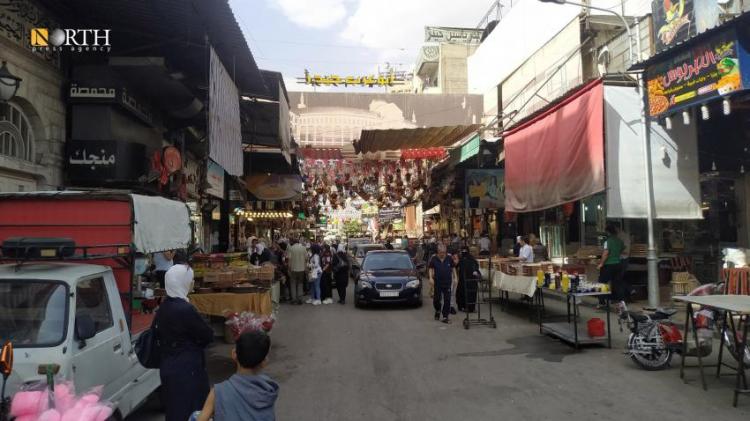Damascus – North-Press Agency
This Ramadan’s season witnessed a significant decline in the showing of Syrian dramas, amid a decrease in the follow-up of the work and criticism by viewers and critics, whether in terms of issues addressed or directed and even on the level of quantity.
Syrian drama series had a good reputation and great public follow-up, which lasted for years since the director Haitham Hakki launched his famous series Biography of al-Jalali in the 1990s. Hakki became the ambassador of the Syrian drama to Arabic screens, in addition to the directors Najdat Anzour and Hisham Sharbatji.
According to critics and specialists, the decline of the Syrian drama has continued due to repetitive topics that are not relatable and do not reflect reality and people's concerns as this year critical articles evaluated the dramas of Ramadan as bad, poor, and disappointing.
A number of viewers had responses such as, "I watched some episodes and could not follow," which largely matched the opinions of critics.
Unforgivable errors
"Most of the topics raised are superficial, and there are unforgivable directive errors," Reem Ayzuki, a diploma student in cinematography and art, told North-Press.
Theater actor Suleiman Hindi told North-Press that most of the works fell into the trap of repetition, especially the Levantine ones, as they did not present anything new.
He added: "Although some works were successful, the Syrian drama’s low quality was clear to everyone.”
Hindi was surprised that the decline occurred after many years of brilliance, and felt that it is necessary to find a solution to restore Syrian dramas’ viewership.
Raghad Abu Hassan, a Graphic Department graduate of the Fine Arts Faculty, told North–Press that some works contain good ideas, but the way they are presented is bad. They do not care about the viewer's eyes, so the lighting looks artificial and does not add any aesthetic dimension to the image."
Even though television is a visual art and the viewer's eye must remain comfortable to continue following the series, nobody cares about color formation. Unfortunately, sometimes the actors' clothing colors are incompatible with furniture or wall colors, as if those in charge of these works do not have any formative culture,” she added.
The absence of serious texts
Journalist Pascal Tabet blamed the problem on the culture of the producer, who deals in an inappropriate manner with professional writers, and thus creates weak scripts written by those unfamiliar with the origins of dramatic writing.
She pointed out that “opening the door for non-specialists to direct works will definitely lead to this level, as we will experience dramas made by illiterate people, with no one to follow-up or respect."
She added, "I know an advertising editor who is directing dramas now, and I feel pity for the casts who become less popular, so they turn to directing, until it becomes the work of those who have none."
The cluster
Tabet drew attention to the logical result of the cluster prevalent in the artistic community, which led to being forced to follow an actor or actress who lacks talent, while the center is full of outstanding artistic talents that are excluded without clear reasons.
It is worth mentioning that the Film and Television Manufacturing Committee, which grants licenses to artistic production companies, requires sufficient financial balance for those who want to create an artistic production, while education or culture level are not required. Likewise, the Artists Union grants work permission to those who wish to direct works, provided that they only pay the required fees.

